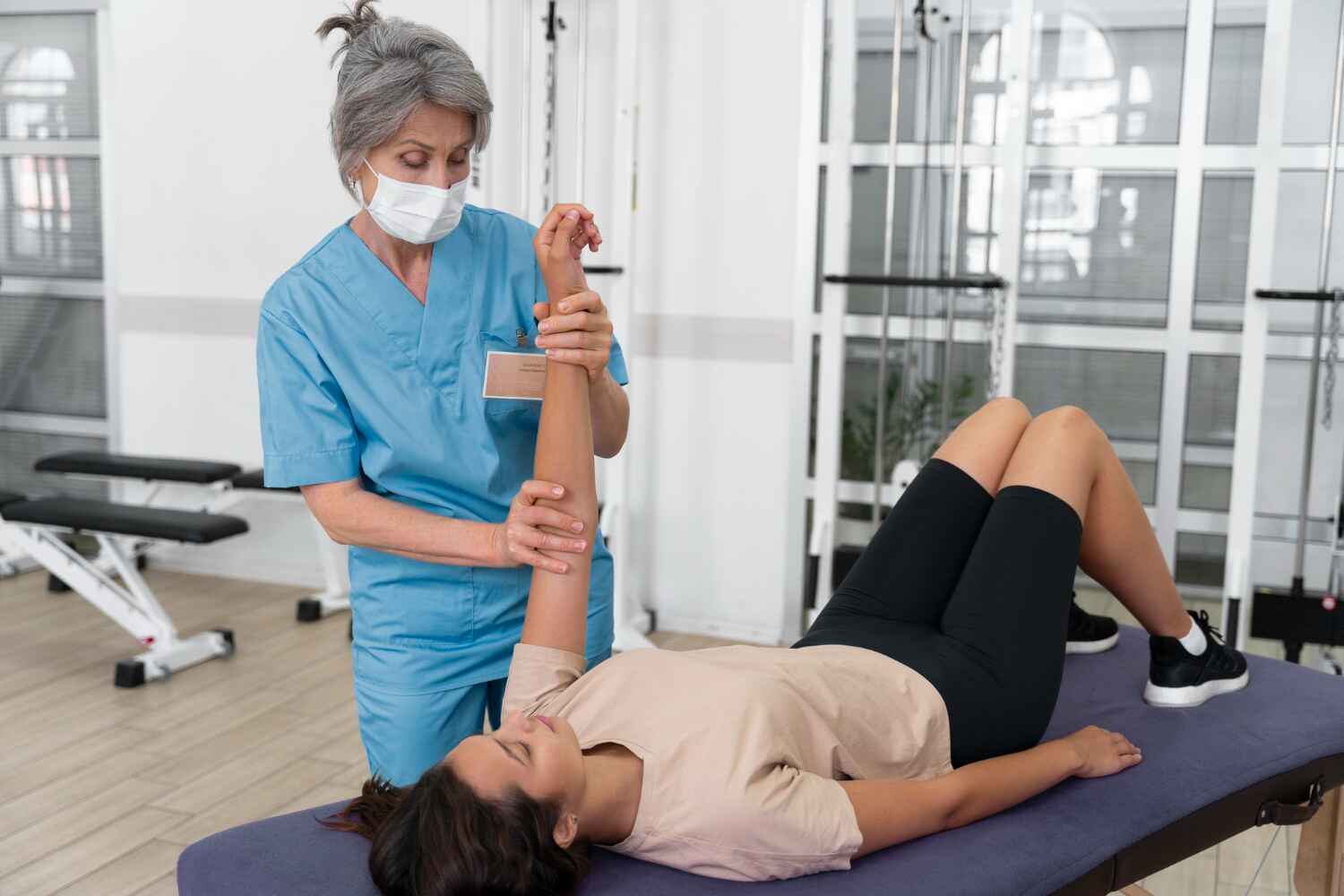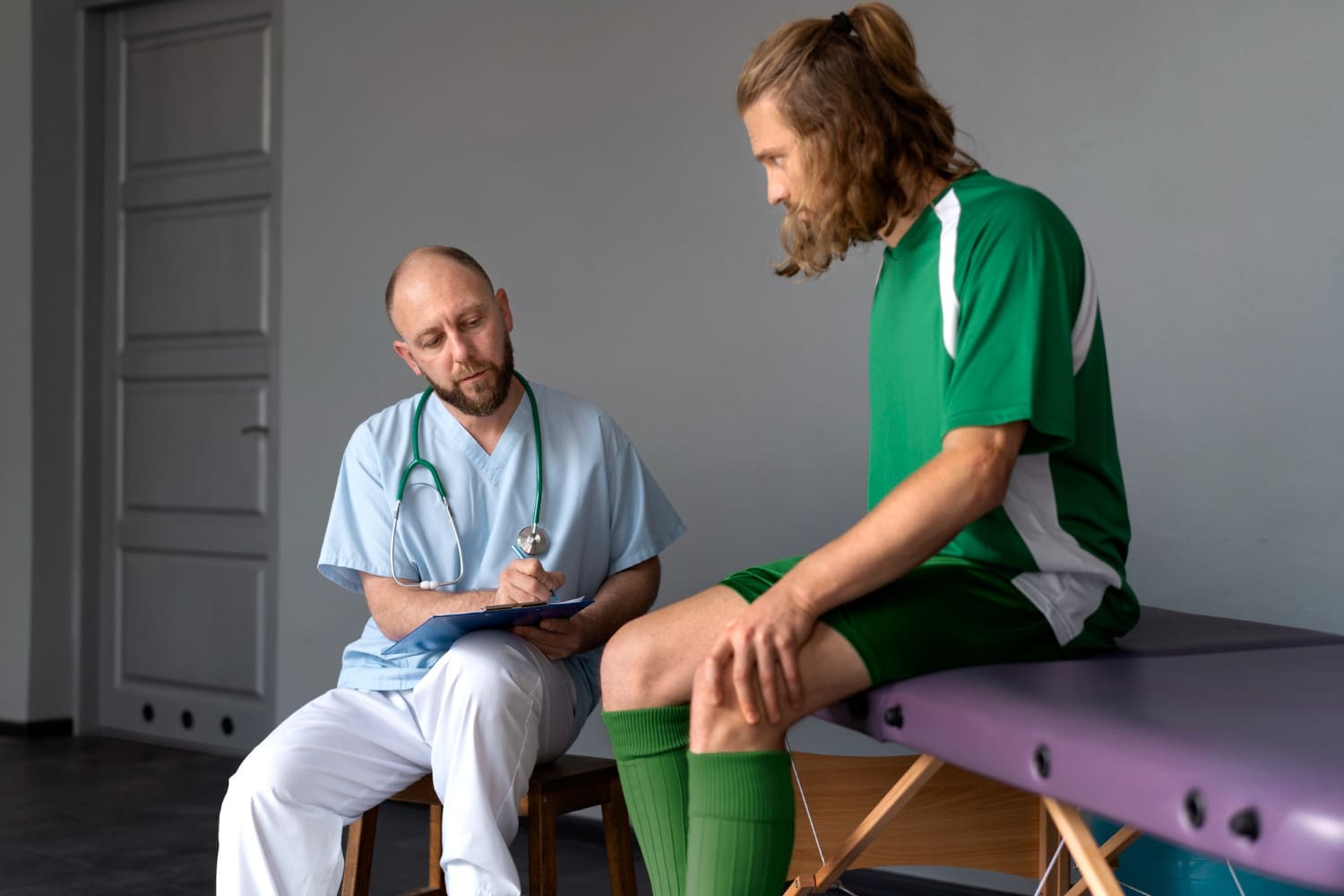Foot and ankle surgeries are common procedures aimed at restoring mobility and relieving pain for individuals suffering from various conditions such as fractures care , ligament injuries, or degenerative diseases. However, the journey to full recovery doesn’t solely rely on surgical intervention; it also heavily depends on post-surgery care, particularly proper nutrition. In this blog, we delve into the vital role of nutrition in the recovery process after foot and ankle surgery, offering insights and dietary recommendations to optimize healing.
At OrthoMiami, we understand the significance of comprehensive care, which is why we emphasize the integration of nutritional support alongside surgical interventions. Call us at 786-746-8060 to schedule your appointment and embark on a journey toward holistic recovery.
Understanding Foot & Ankle Surgery
Foot and ankle surgeries encompass a wide array of procedures, including bunionectomy, ankle fusion, Achilles tendon repair, and more. These surgeries aim to alleviate pain, restore function, and enhance the quality of life for patients.
Following surgery, patients may experience limitations in mobility and daily activities due to pain, swelling, and the need for immobilization or assistive devices such as casts or crutches.
The recovery timeline varies depending on the type and complexity of the surgery, ranging from weeks to months. Challenges during recovery may include managing pain, swelling, stiffness, and the risk of complications such as infection or delayed healing.
The Healing Process
The body’s natural healing mechanisms play a crucial role in the recovery process after foot and ankle surgery. Proper nutrition is essential for supporting these mechanisms, as it provides the necessary nutrients for tissue repair, regeneration, and immune function. Dietary choices can significantly influence inflammation and pain levels. Foods rich in antioxidants, anti-inflammatory compounds, and essential nutrients can help reduce inflammation, alleviate pain, and promote faster healing.
Key Nutrients for Recovery
1. Protein: Protein is the cornerstone of tissue repair and regeneration. Adequate protein intake is crucial for rebuilding damaged tissues, including muscles, tendons, and ligaments. Good sources of protein include lean meats, poultry, fish, eggs, dairy products, legumes, and tofu.
2. Vitamins and minerals: Essential vitamins and minerals such as vitamin C, vitamin D, calcium, and zinc play key roles in supporting immune function, bone health, and overall healing. Incorporating a variety of fruits, vegetables, whole grains, nuts, and seeds into your diet can help ensure adequate intake of these nutrients.
3. Omega-3 fatty acids: Omega-3 fatty acids have potent anti-inflammatory properties, which can help reduce inflammation and promote healing after surgery. Fatty fish such as salmon, mackerel, and sardines, as well as flaxseeds, chia seeds, and walnuts, are excellent sources of omega-3 fatty acids.
4. Hydration: Proper hydration is essential for optimal recovery. Adequate water intake helps maintain blood volume, regulate body temperature, and facilitate nutrient transport and waste removal. Aim to drink at least 8-10 glasses of water per day, or more if you’re physically active or experiencing excessive sweating.
Dietary Recommendations
Sample meal plan for the post-operative period:
- Breakfast: Scrambled eggs with spinach and mushrooms, whole grain toast, and a glass of orange juice.
- Snack: Greek yogurt with mixed berries.
- Lunch: Grilled chicken salad with mixed greens, cherry tomatoes, cucumber, avocado, and olive oil vinaigrette.
- Snack: Hummus with carrot and celery sticks.
- Dinner: Baked salmon with quinoa and roasted vegetables.
- Snack: Cottage cheese with pineapple chunks.
Foods to include and avoid for optimal healing:
- Include Lean proteins, fruits, vegetables, whole grains, healthy fats, and plenty of water.
- Avoid Processed foods, sugary snacks, excessive caffeine, and alcohol, which can impair healing and increase inflammation.
Tips for maintaining a balanced diet while recovering:
- Plan and prepare meals in advance to ensure you have nutritious options readily available.
- Opt for smaller, more frequent meals to prevent nausea and aid digestion, especially if you’re taking pain medications.
- Listen to your body and eat mindfully, paying attention to hunger and fullness cues.
Special Considerations
Nutritional needs may vary depending on the type of foot and ankle surgery performed. For example, patients undergoing fracture repair may require higher amounts of calcium and vitamin D to support bone healing.
If you have dietary restrictions or allergies, work with a healthcare professional or registered dietitian to develop a personalized meal plan that meets your needs.
Be mindful of potential interactions between medications and dietary supplements. Some medications may affect nutrient absorption or metabolism, so it’s essential to discuss any supplements with your healthcare provider.
Lifestyle Factors
Rest and activity modification are crucial components of the recovery process. Allow adequate time for rest and avoid putting weight on the operated foot or ankle as recommended by your surgeon.
Incorporate gentle exercises such as range of motion exercises, stretching, and non-weight-bearing activities to promote circulation, flexibility, and muscle strength without compromising healing.
Practice stress management techniques such as deep breathing, meditation, or gentle yoga to reduce stress levels, promote relaxation, and support overall well-being during the recovery period.
Accelerate Your Recovery: Nutritional Support Starts Here!
Nutrition plays a pivotal role in enhancing recovery after foot and ankle surgery. By prioritizing proper nutrition, patients can support their body’s natural healing processes, reduce inflammation, and accelerate the recovery timeline. At OrthoMiami, we recognize the importance of comprehensive care, which includes providing patients with nutritional guidance to optimize their recovery outcomes.
Call us at 786-746-8060 to schedule your appointment and embark on a journey toward holistic healing. Remember to consult with a healthcare professional for personalized dietary recommendations tailored to your specific needs and circumstances.


